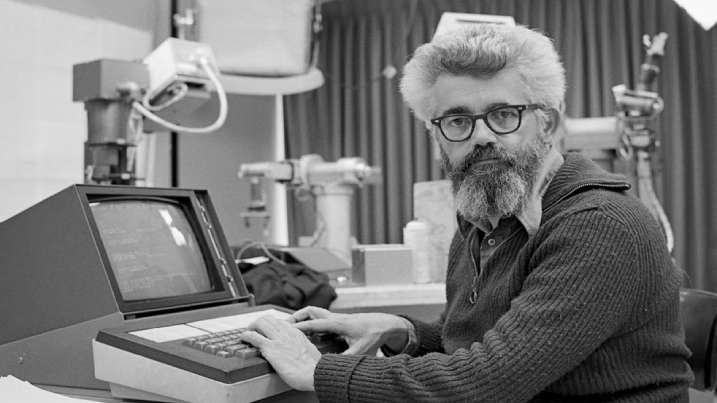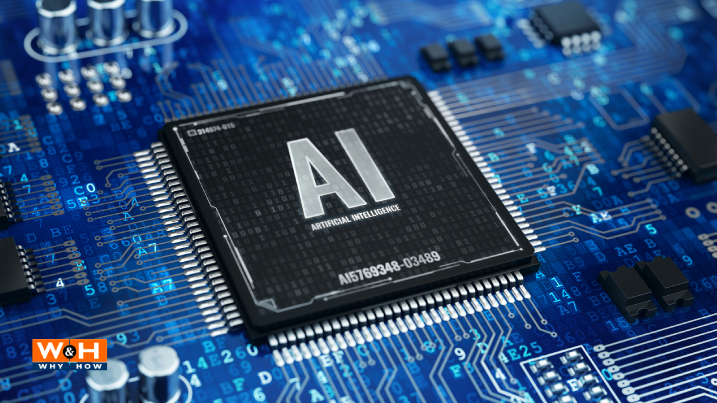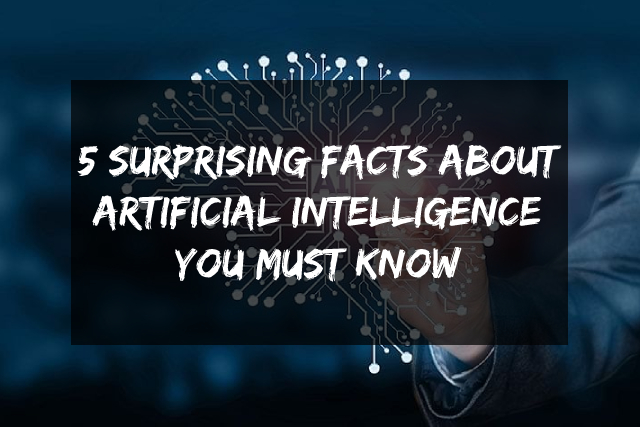Certainly, the past few years have seen Artificial Intelligence increasingly being used across a whole slew of industries. Now, this branch of computer science is geared towards developing computers and machines. These machines are capable of performing their designated tasks, even without human intelligence involved, in a bid to make our lives less risky and much easier. Well, in this post we will tell you the interesting facts about Artificial Intelligence.
Table of Contents
ToggleInteresting facts about Artificial Intelligence
Indeed, artificial Intelligence is no longer something only seen in science fiction. Rather, it’s now something that we experience every day, used for its convenience and practicality. For instance, digital assistants like Siri for Apple and Alexa for Amazon are all examples of how Artificial Intelligence is used to make our daily routines much simpler. These two nifty robotic voices are capable of everything we ask them to, from scheduling our appointments to searching the web. The next few years will see Artificial Intelligence becoming more and more integrated into our daily lives.
With that, here are five cool facts about this incredible development that you should definitely know about.
1. Artificial Intelligence makes use of Isaac Asimov's work
A world-renowned American writer and Professor of Biochemistry at Boston University, Isaac Asimov is perhaps one of the most famous names in the world of science fiction. He wrote or edited more than 500 books. Largely considered to be one of the Big Three writers in the genre during his lifetime, some of his most popular works include the Foundation series. This series earned the Hugo Award for Best All-Time Series in 1966, and the Galactic Empire novels. However, it was his short story, “Runaround” that proved to have a legacy like no other. In it, Asimov formulated and outlined the Three Basic Laws of Robotics, which were namely;

- A robot may not injure a human being or, through inaction, allow a human being to come to harm.
- A robot must obey the orders given to it by human beings except when such orders would conflict with the First Law.
- Furthermore, a robot must protect its own existence as long as such protection does not conflict with the First or Second Laws.
Today, these laws are the heart of Artificial Intelligence and no developer works without them in mind.
2. Artificial Intelligence was coined in 1956
While scientists already had an inkling of the connection between neural networks and natural language, the actual term for this branch of computer science was only created in 1956. That year, a conference was held at Dartmouth College, New Hampshire. The conference lasted between six to eight weeks. It was a brainstorming session. The session was designed to get the brightest mathematicians and scientists in the world at the time to consider the future of thinking machines.

It was at this conference that John McCarthy, an Assistant Professor of Mathematics at Dartmouth College cooked up the term Artificial Intelligence. He organized the conference. Also, he picked the name to reflect both cybernetics and automata theory, names which the field was being referred to at the time. And thus, the Dartmouth Summer Research Project on Artificial Intelligence was held in the summer of 1956, changing the course of the world forever.
3. Artificial Intelligence will be worth a lot
With more and more industries increasingly making use of Artificial Intelligence, it’s unsurprising that experts forecast it to be worth a ton in the future. In fact, a recent report from PwC estimated that it will contribute approximately 15.7 trillion to the global economy by the year 2030. More importantly, it’s poised to significantly increase North American GDP by 14% by that year.

4. Artificial Intelligence is a polarizing topic in the tech industry
Understandably, the wide range of advancements and developments that Artificial Intelligence is bound to bring has made it a polarizing topic in many industries. Especially, it will disrupt the tech industry to the great extent.
For instance, during the 2018 Viva Technology Conference in Paris, Facebook co-founder and current CEO Mark Zuckerberg said, “I think that AI is going to unlock a huge amount of positive things, whether that’s helping to identify and cure diseases, to help cars drive more safely, to help keep communities safe”.

On the other hand, the influential theoretical physicist Stephen Hawking held that extreme caution had to be taken when dealing with Artificial Intelligence. Once he said, “The development of full Artificial Intelligence could spell the end of the human race. It would take off on its own, and re-design itself at an ever-increasing rate. Humans, who are limited by slow biological evolution, couldn’t compete and would be superseded”.
5. Artificial Intelligence will change social media
Certainly, at present, the world’s biggest social media platforms are locked in an intense race over which would be the most victorious at using Artificial Intelligence. They want it to enhance the user experience, enticing people to generate more content and stay on their respective sites longer. Facebook and Twitter are currently applying Artificial Intelligence to match relevant content to their users. That is why, your newsfeed and timeline are both full of articles, photos, and whatnot that you find interesting. However, the leader of this race is undoubtedly Google. Indeed, it is considered as being the world’s most preferred and most reliable search engine.

The bottom line
With rapid leaps and bounds being made in research and studies on Artificial Intelligence, there’s no telling just how much this science will transform our lives. One thing’s for sure, though, it has already introduced a ton of significant changes. Undoubtedly, we’re bound to see some more in the years to come. Well, that’s it for this post. We hope you enjoyed the facts about artificial intelligence. What do you think about all the Artificial Intelligence that’s becoming a part of our daily lives? Let us know your thoughts in the comments below.

